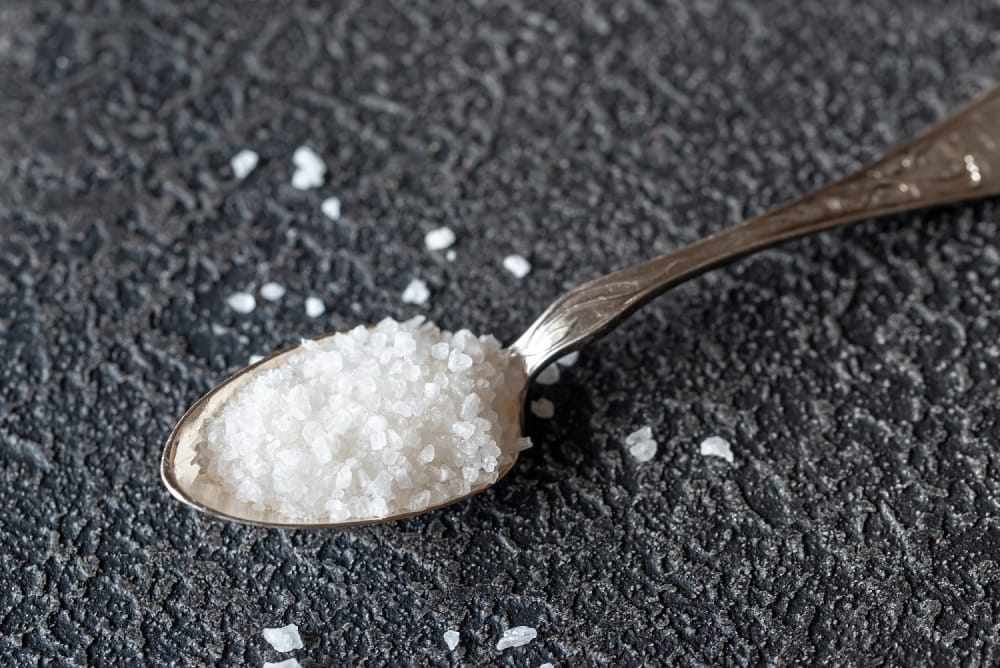
Kosher Salt What’s special about kosher salt? Why It’s Called Kosher
Sea salt crystals can be fine, flaky, chunky or coarse. Appearance: Kosher salt crystals are coarse and pebble-shaped, whereas sea salt is more delicate and crystals can take on a flaky or pyramid.
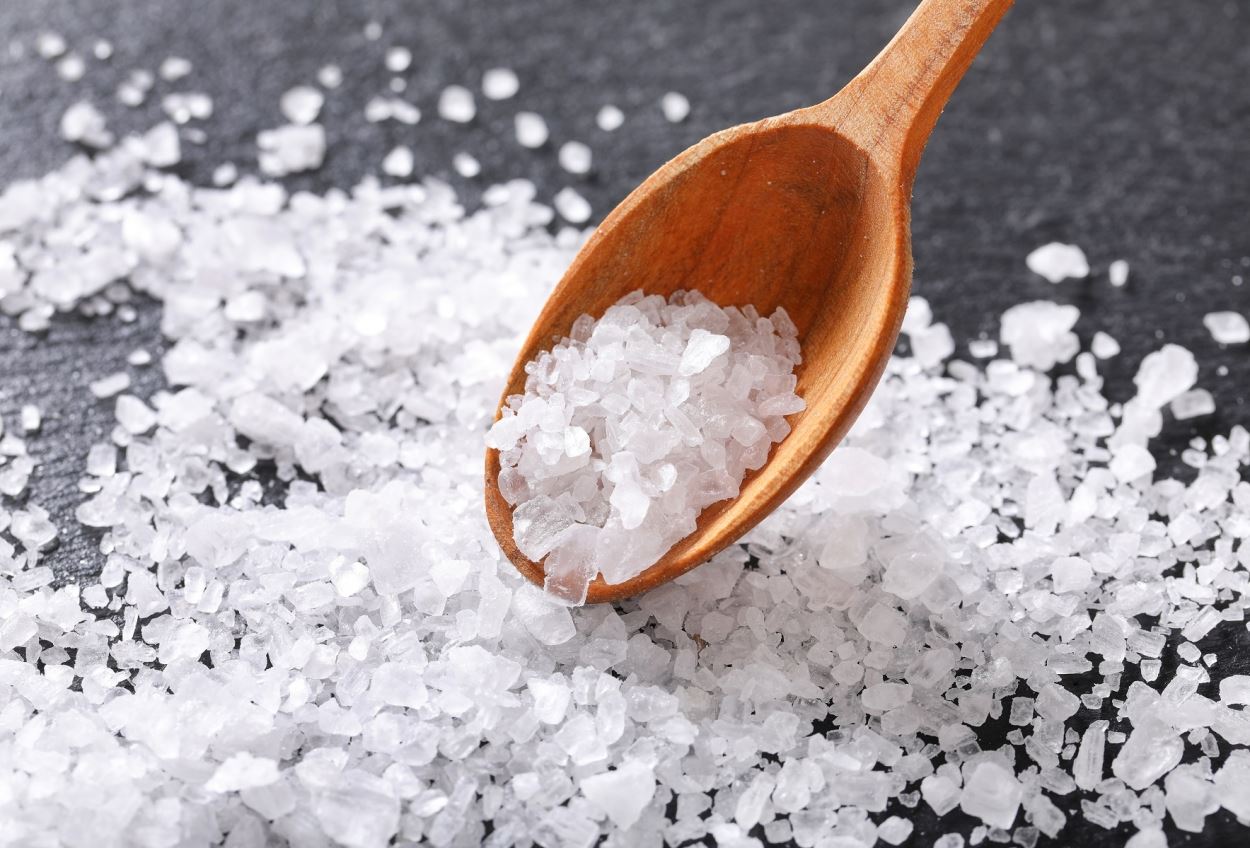
Kosher Salt What’s special about kosher salt? Why It’s Called Kosher
Kosher salt is a coarse-grained salt made from the salt crystals. It is usually not iodized, but some brands may contain an anti-caking agent. The evaporation process determines the salt's final shape, so kosher salt can be flat or pyramidal in structure depending on the brand. The top two brands are Morton and Diamond Crystal: Morton's is.

Kosher Salt Large Crystals, Clean Taste
Kosher Salt vs Sea Salt. Kosher salt is made from evaporating underground salt beds while sea salt is made from evaporated sea water. In addition to sodium chloride, there are trace amounts of minerals left behind in the salt that were once dissolved in the water. This addition of minerals gives sea salt a sort of "terroir.".

The Difference Between Kosher Salt and Table Salt
After a kosher animal is properly slaughtered, all blood must be removed. This is normally accomplished by salting the meat, as salt draws out blood. Table salt is too thin and will dissolve into the meat without drawing out the blood, and salt that is too coarse will roll off. The salt that is "just right" for koshering meat is called.

Two Men and a Little Farm INGREDIENT ESSENTIALS KOSHER SALT
Kosher salt, on the other hand, is mostly mined from salt deposits and mines found on land. 2. Texture Both kosher salt and sea salt are coarse salts, although kosher salt is more coarse with its larger and uneven grains. Sea salt can be as coarse as kosher salt or as fine as table salt, which is dictated by how it is processed. 3.
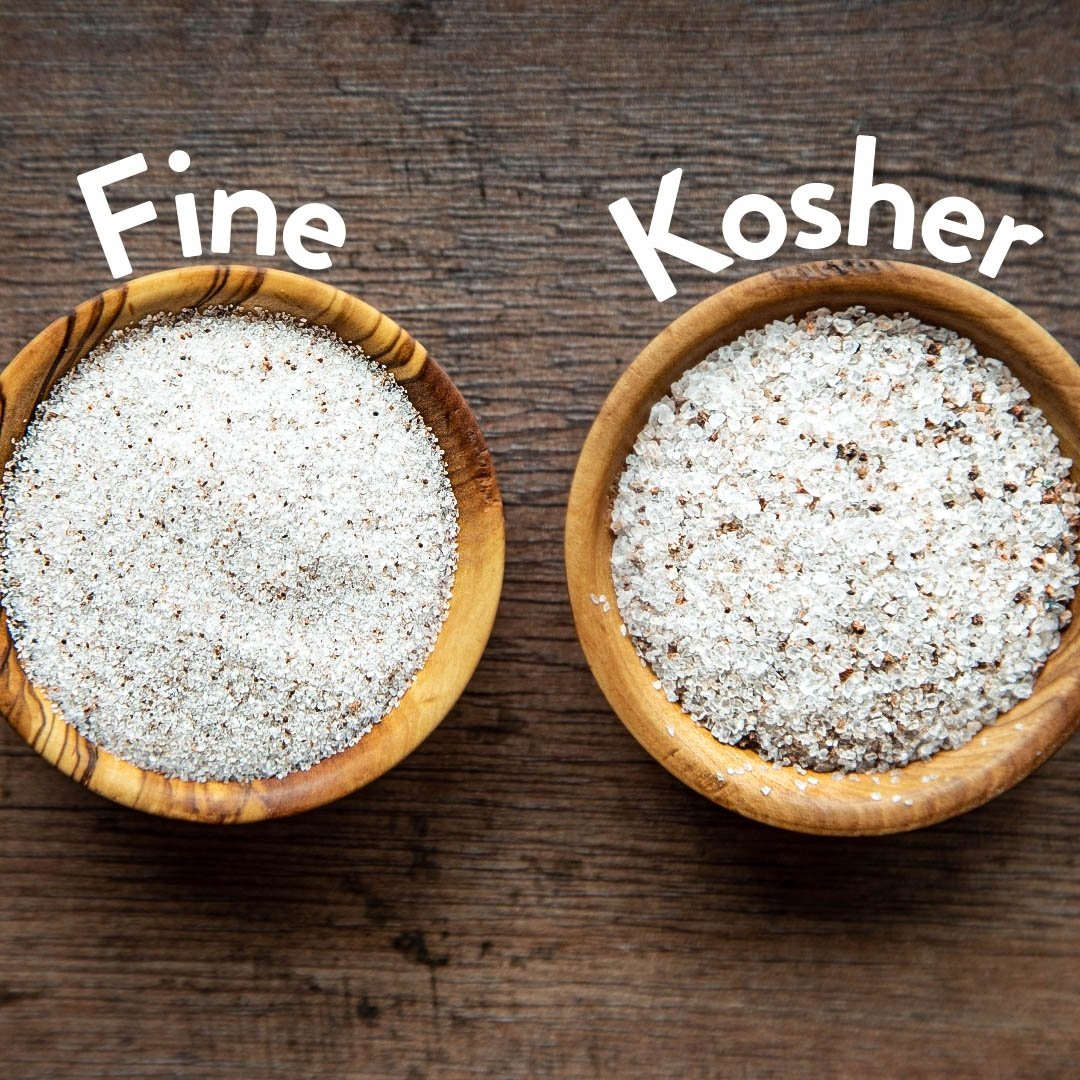
What is Kosher Salt, Anyway?
Here's how to identify and differentiate kosher salt, sea salt, and table salt: Kosher salt has a large, coarse, uneven grain. It's usually not iodized and it's very versatile, as it's composed of large, light flakes that don't dissolve immediately. Sea salt has a smaller, but still coarse, grain. It's made from evaporated sea water and is.
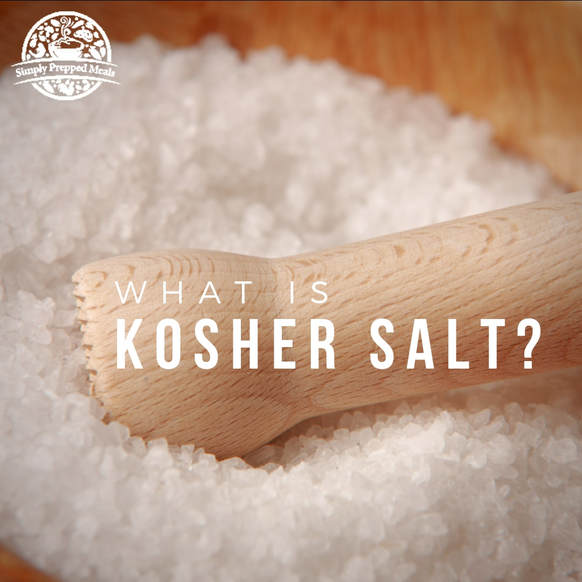
What is kosher salt?
Table salt often has anti-caking agents such as tricalcium phosphate and stabilizers such as dextrose added. The additives in kosher salt vary by brand. For example, Diamond Crystal has no additives, while Morton Kosher Salt has the anti-caking agent yellow prussiate of soda. Texture, grain size, and volume: While table salt has very fine.
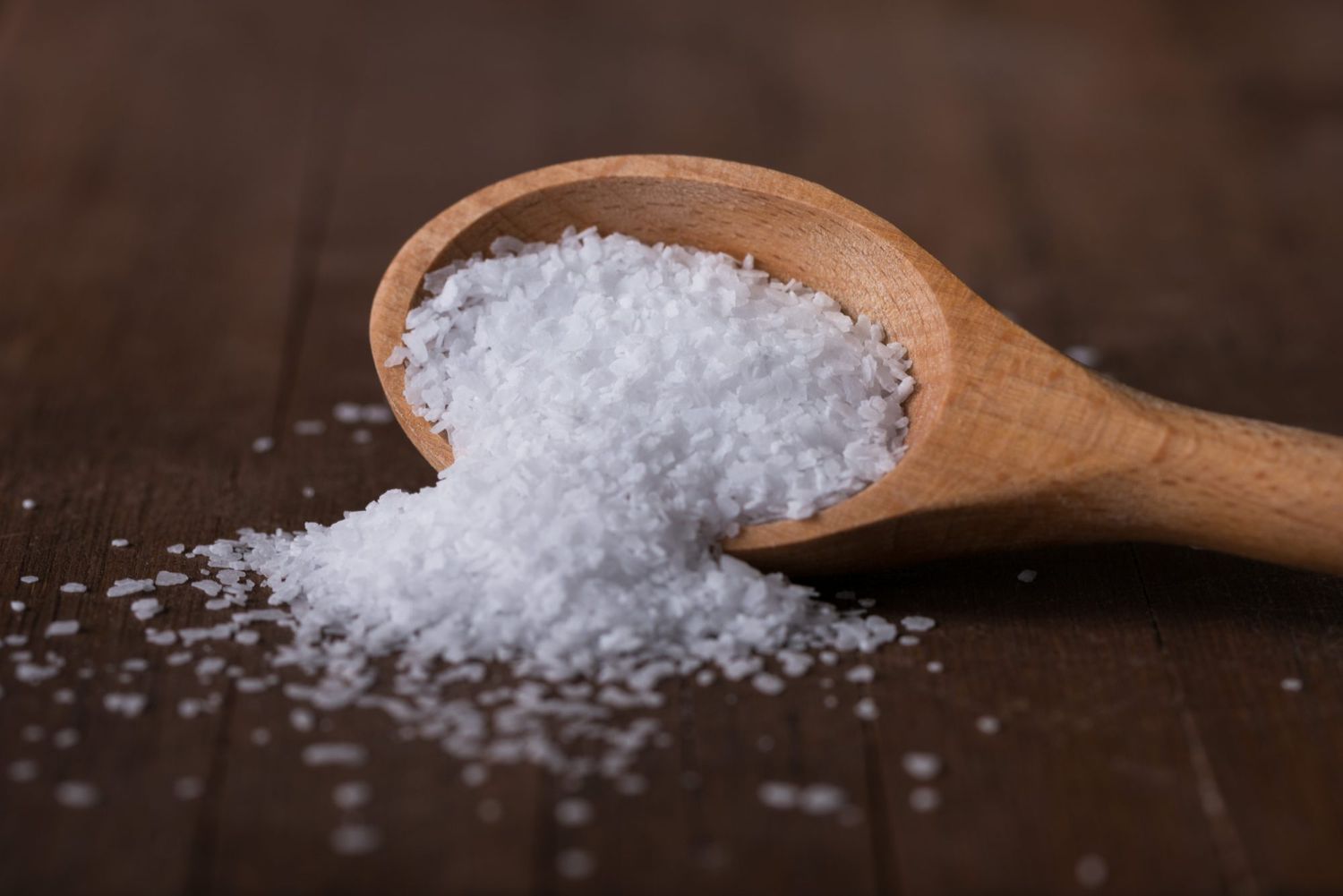
What Is Kosher Salt and Is It Really Kosher? Allrecipes
This is normally accomplished by salting the meat, as salt draws out blood. Table salt is too thin and will dissolve into the meat without drawing out the blood, and salt that is too coarse will roll off. 2 The salt that is "just right" for koshering meat is called "kosher salt.". Many chefs and recipes call exclusively for kosher salt.

Kosher salt & the difference between cooking salts Jess Pryles
Rather, kosher salt gets its name from the Jewish tradition of koshering meat with salt, in which salt is used to draw blood and moisture out of meat and poultry. Because kosher salt crystals are slightly larger and coarser in texture than table salt, they adhere more easily to meat and coax out moisture faster. Carson Downing.
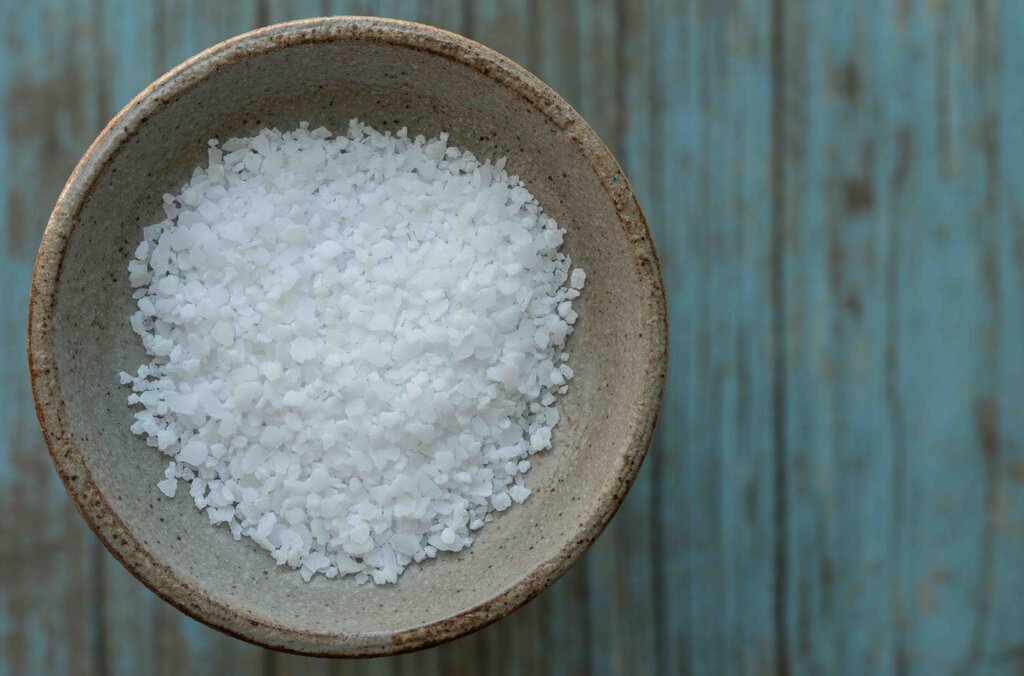
7 Best Kosher Salt Substitute Options in Cooking
Kosher salt is a coarser-grained, additive free salt. Depending on the brand and the evaporation process, kosher salt crystals may be flaky or shaped almost like diamonds, if your eyesight is good enough to see their dimensions. Kosher salt does not contain iodine (sodium iodide) or anti-caking agents like smaller-grained table salt.
:max_bytes(150000):strip_icc()/kosher-salt-2500-56a210ee5f9b58b7d0c6330a.jpg)
What Is Kosher Salt? 6 Questions Answered
Kosher salt is a type of salt with large, coarse grains. It's mined from salt deposits. Despite the name, not all brands of kosher salt are kosher certified or considered kosher. It's called.
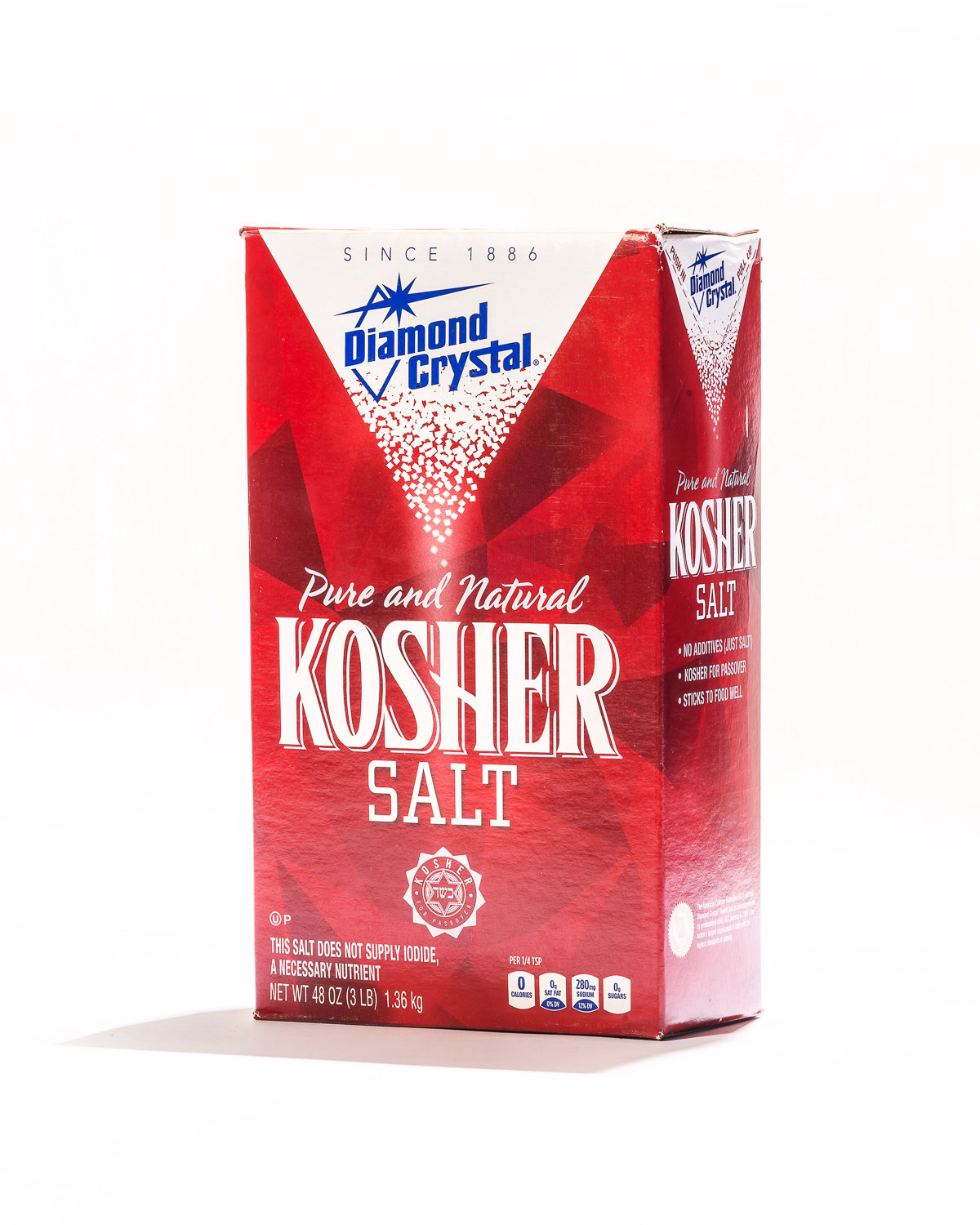
Kosher Salt Tablet Magazine’s 100 Most Jewish Foods List
The most important takeaway is that kosher salt is flavor. Read on to find out why. First, let's get literal: Kosher salt has become an all-encompassing name for what is more accurately known as kosher-style salt, which is a coarse salt. Kosher salt gets its name from its role in the Jewish culinary tradition of koshering, where salt is used.

Tips for Cutting Calories but not Cutting Taste Cook Eat Run
Etymology. Coarse edible salt is a kitchen staple, but its name varies widely in various cultures and countries. The term kosher salt gained common usage in the United States and refers to its use in the Jewish religious practice of dry brining meats, known as kashering, and not to the salt itself being manufactured under any religious guidelines.Some brands further identify kosher-certified.
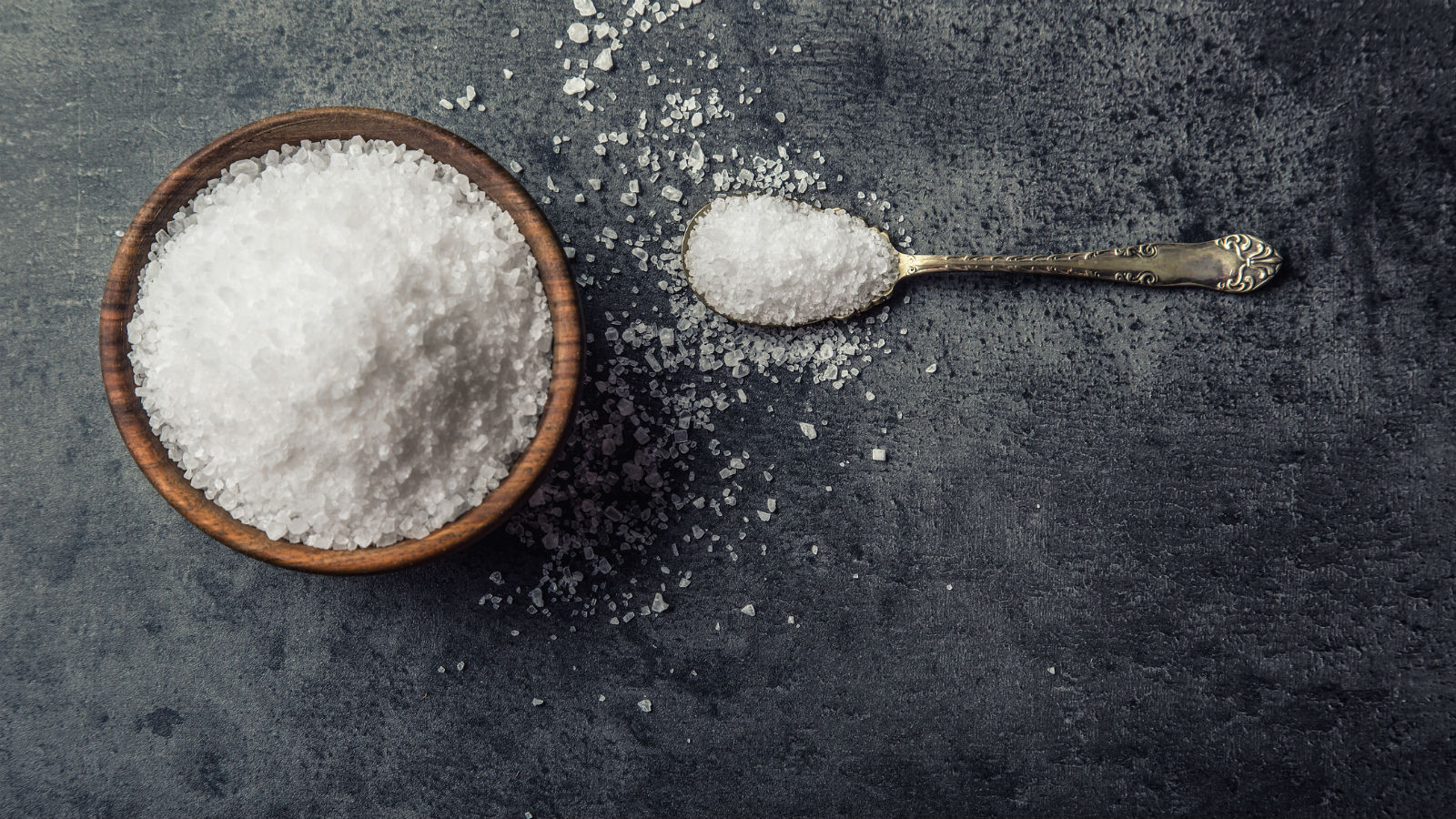
What Is Kosher Salt? The Nosher
Now, on to kosher salt. Kosher salt is mainly derived from salt mines. These mines are the result of seawater that evaporated and left behind salt deposits. However, this doesn't mean that all kosher salt will have the same size and shape. Like all-purpose flour, kosher salt may vary by brand. You may find one brand has different-sized.

The Ultimate Guide to Kosher Salt Sous Chef UK
Kosher salt is a pure salt that is a fairly large-grained salt, that was originally used in the process of making meat kosher. Its purpose was to pull all of the blood out of the meat going.
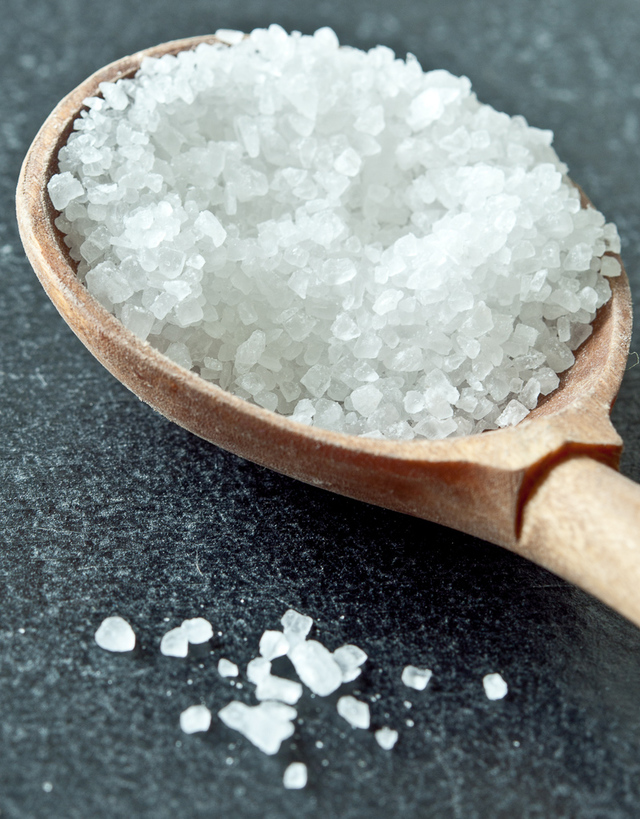
Ingredient Kosher salt recipeland
It's the coarse salt used to remove blood from meat, which is part of the koshering process. Kosher salt doesn't automatically follow Jewish dietary guidelines, but once the name was used by salt.